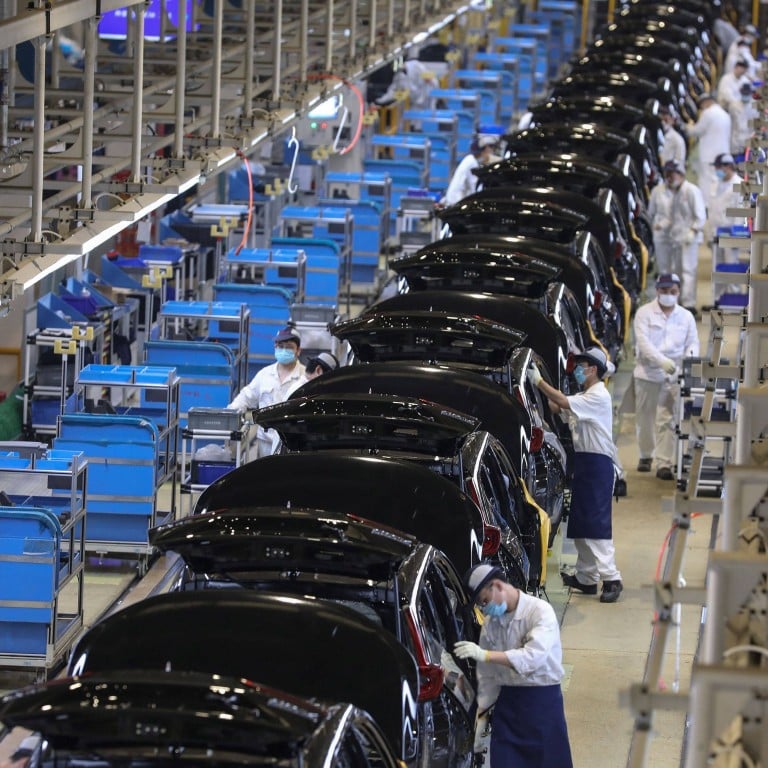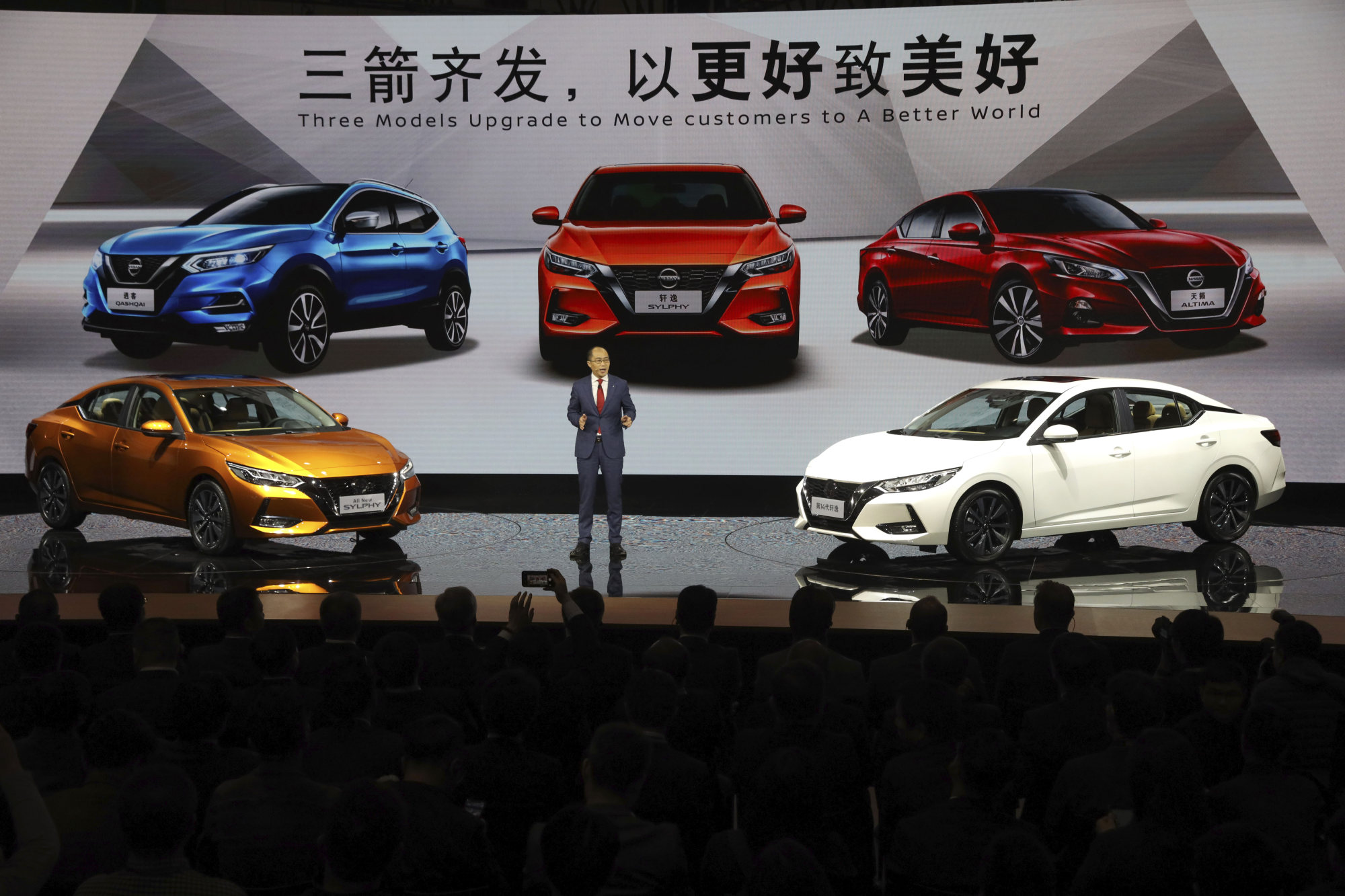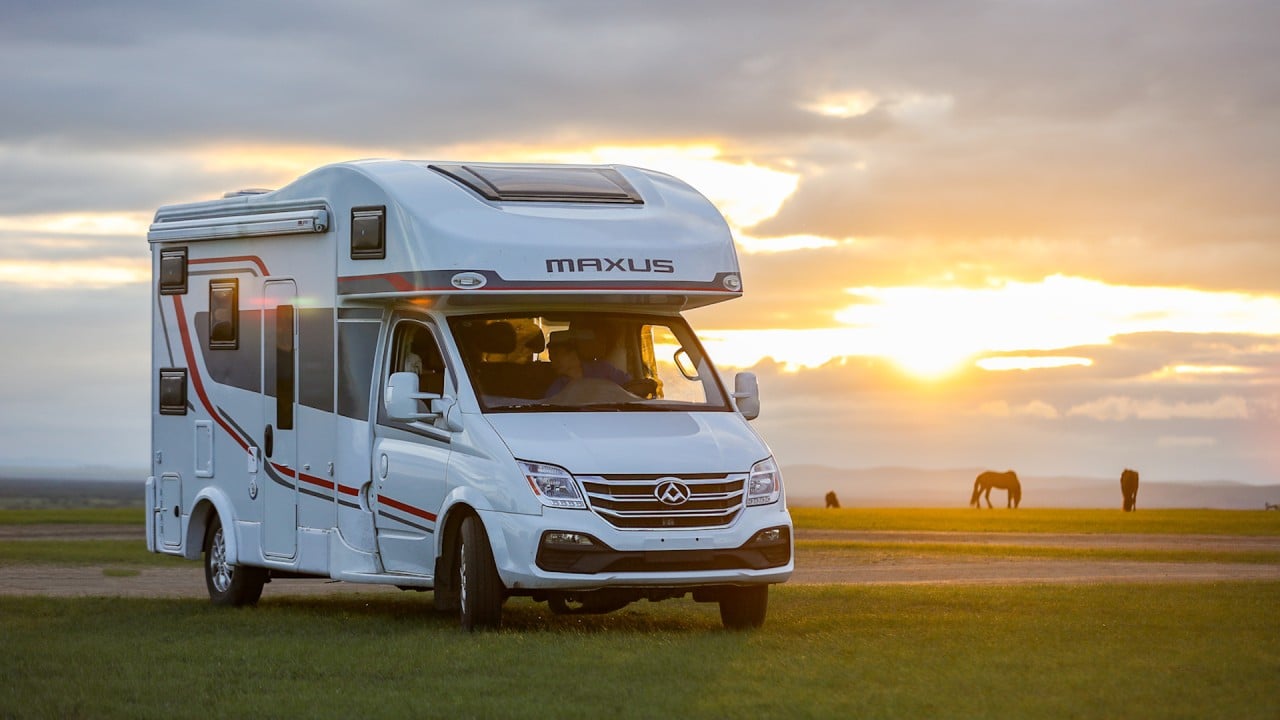
Sales of Japanese carmakers Toyota, Nissan and Honda sink in China as they fall behind in EV race
- Japan’s top six carmakers – Toyota, Nissan, Honda, Mazda, Mitsubishi and Subaru – sold nearly 20 per cent fewer cars in China in the first half
- The market share of the six Japanese carmakers in China fell to 17.8 per cent in June, from 21.6 per cent a year ago, CPCA data showed.
The top six – Toyota, Nissan, Honda, Mazda, Mitsubishi and Subaru – all of which assemble and sell cars through their joint ventures with Chinese partners, sold 1.71 million conventional vehicles between January and June, a 19.9 per cent decline year on year, according to industry data provider MarkLines.
“The dynamic Chinese car market requires all players to react quickly to customers’ changing tastes,” said Eric Han, a senior manager at Suolei, an advisory firm in Shanghai. “Japanese carmakers are lagging behind their Chinese rivals in developing electric cars which are now in high demand here.”
Nissan was the worst affected, with deliveries of conventional cars in the first half slumping 24.4 per cent year on year to 358,509 units, the data showed. Honda’s sales plummeted 22 per cent to 529,691 units, while Toyota was relatively unscathed. Deliveries by Japan’s top carmaker fell 2.8 per cent to 879,400 units in the span.

The last time Japan’s top carmakers reported such massive sales slump was in 2012 in the wake of anti-Japan protests over the disputed Diaoyu Islands in the East China Sea. Monthly sales in September of that year fell from 35 per cent to 50 per cent at Nissan, Honda and Toyota.
Sales of EVs by the Japanese marques were not available. In June alone, the six companies controlled 17.8 per cent of China’s car market, compared with 21.6 per cent a year ago, according to the data provided by the China Passenger Car Association (CPCA).
China’s Tesla rivals see sales jump in June, as demand for EVs rebounds
Overall car sales in the first half in China rose 2.7 per cent year on year to 9.52 million units, according to CPCA.
Pure electric and plug-in hybrid cars drove the growth. A total of 3.08 million units were delivered in the first half, up 25 per cent from last year’s 2.47 million. The environmentally friendly cars accounted for 32.4 per cent of the total sales.
Japanese brands, particularly Toyota, Nissan and Honda, have been well received by mainland drivers over the past decade because of their sleek designs and fuel efficiency. They emerged winners in a faltering Chinese market between 2019 and 2022.
A price war in China in the first four months of this year saw makers of both electric and conventional cars offer heavy discounts to attract consumers worried about the economy and their livelihoods.
Dozens of carmakers, including Japanese marques, slashed prices to retain market share. But the heavy discounts failed to drive up sales because budget-conscious consumers did not bite, believing even deeper price cuts could be on the way.
Many Chinese motorists who had been waiting on the sidelines anticipating further price cuts decided to enter the market in May as they felt the party was over, a research note by Citic Securities said.
Sales of battery-powered vehicles in the mainland will rise by 35 per cent this year to 8.8 million units, UBS analyst Paul Gong forecast in April. The projected growth is much lower than the 96 per cent surge recorded in 2022.


